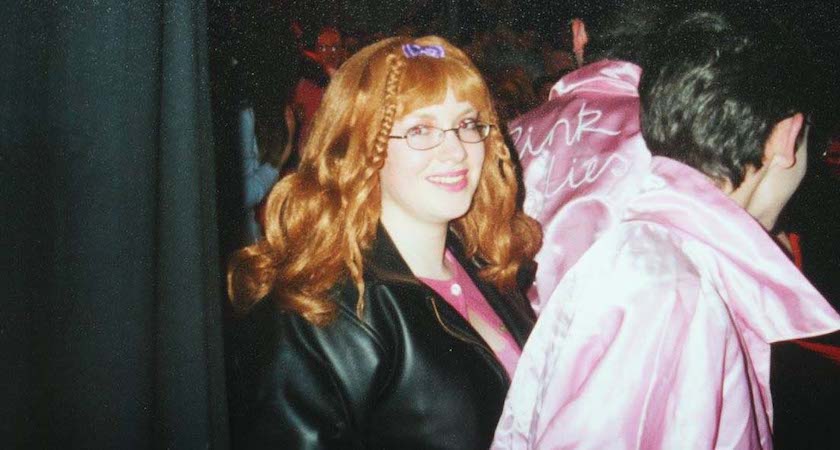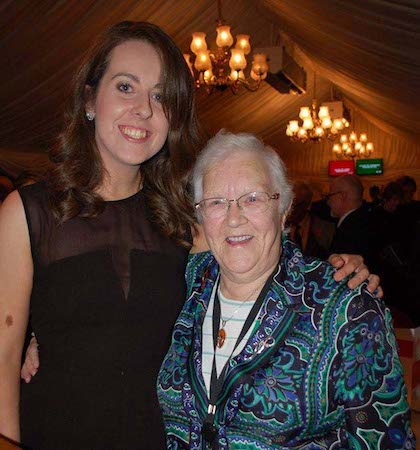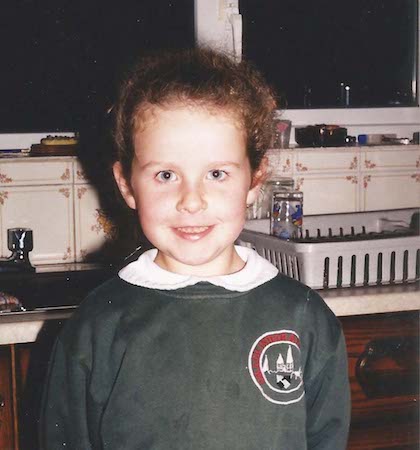In partnership with the Integrated Education Fund
INTEGRATED EDUCATION in Northern Ireland is a relatively new concept but its first generation of pupils are embarking on their own careers and slowly learning that their normal should be the standard in a country still plagued by division.
Here two Ex AlumNI talk about why they are dedicated to advocating integration.
The Integrated Education Fund (IEF) was set up in 1992 to bridge a financial gap between setting up integrated schools and securing full government funding and support in Northern Ireland.
It’s still a section of the education landscape that receives little support from its local government despite its objective to narrow the divisional gap there almost 20 years on from the Good Friday Agreement.
Over the past 25 years the IEF has successfully raised £20million to realise many of the 65 formally integrated schools in NI that cater to some 23,000 pupils.
And recently, despite support from many of the political parties at Stormont, 2017 showed a higher demand for integrated education - mainly led by parents - which gave way to the approval of some 1,000 new places by the Department of Education.
Realising the impact educating NI kids together has on the future of Northern Ireland, ex pupils of integrated establishments, who are starting their own careers at home or across the water, are joining forces to raise the profile of the IEF.
They regularly meet to mentor one another. Although it’s a network still in its infancy, it’s objective is significant.
'Integrated education is a vital part of the transformation of the North despite the weight of history and tradition'
Hilary Copeland is 31 years’ old. She was one of the first wave of pupils to study at an integrated school in Northern Ireland and is part of the AlumNI network hoping to create awareness of the movement and its contribution to a more peaceful future in Northern Ireland.
She attended New-Bridge Integrated College in Loughbrickland, a small rural village in Co. Down.
The school opened in 1995. Hilary joined in 1997 and left in 2004.
“I see the normalisation of the integration of various cultural backgrounds within civic life to be key in tackling the societal divisions in the North,” said Hilary who only realised how different her upbringing was to her peers in NI after returning from studying in Edinburgh.
Today she is the General Manager of The John Hewitt Society in Belfast, a community arts charity that promotes the use of literature and arts as a means to creatively explore issues of division and identity in Northern Ireland’s divided society.
And she pretty much takes her work home when she actively promotes integrated education as part of the AlumNI team.
“I am the NI regional group Chair of the Integrated AlumNI, the association of past pupils from integrated schools.
"The alumni initiative started in London, and I got involved back in 2014 when a group had started to meet in Belfast.
"I had heard of other alumni networks through schools and universities that offered support and mentoring to their past pupils, but I learned that nothing like this had existed previously for those of us who went to an integrated school because the integrated movement is comparatively young.
“The first integrated school was established in 1981, so it took a full generation of pupils to become adults before this was possible."
"Our aims are to provide support and advice to current pupils, particularly those towards the end of their school career and to be visible and active advocates who can lobby and campaign for the integrated education movement.
"The best advocates for the success of integrated education are those of us who can speak openly and passionately about how it has shaped our lives,” she said.
Hilary believes integrating children from an early age is key in narrowing the divisional gap at home and credits those parents who were pioneers in the movement.
“Integrated education is a vital part of the transformation of the North as a post-conflict society despite the weight of history and tradition.
"The vision and conviction that those parents and governors had in the early days was possible and is evidenced every day in the 23,000 pupils who have had an integrated education.
"That's something I am very proud to have been a part of.”
'I never realised how important an integrated education would be until I left school and moved to England to begin university.'
Shauna Mulligan, 25, lives and works in London as a a trainee accountant for local authority. She studied at Omagh Integrated Primary School and moved on to Drumragh Integrated College from 2003 to 2010.
She reflects on her experience at an integrated school as ‘very positive’ with hard work, fun and great relationships making up the background to her school days.
“I remember the name of the school having the term integrated in it but the school itself had the ethos of integration as the norm so I never felt that respect and tolerance of differences was anything other than an ordinary thought in life,” said Shauna.
Today Shauna says her educational background made settling into London that little bit easier.
“I never realised how important my education and in particular the uniqueness of having an integrated education would be until I left school and moved to England to begin university.
"I studied in London, one of the most multicultural cities around.
"Having had an education based on celebrating and learning about different religions, cultures and personalities and having a grounded mindset of tolerance and respect meant I felt so prepared for the challenge ahead.
“The culture change for a 19-year-old was massive but my education gave me the confidence to embrace this difference with curiosity, excitement and all round positivity.
"It continues to help me be open minded tolerant and more as I move into the world of work and beyond.”
Looking at the work of the IEF and its goal to make integrated education the norm, Shauna says the future of Northern Ireland could be a different place where children grow up in a safe environment.
It should be a place where they are ‘able to express themselves freely and openly and without the fear of judgement or prejudice’.
“It would allow an understanding of the differences and similarities between us all and the ever diverse society in Northern Ireland.
"Integrated education prepares children with a good attitude and foundation of knowledge for the ever diverse world we live in and gives confidence for a solid foundation of respect no matter where in the world that child chooses to work, live or travel,” she added.
Today, while balancing her new career, Shauna is an avid advocate of the movement.
“It’s a cause that is so easy to get behind because it makes so much sense and is such a positive change for a society still struggling.
"It is a cause that I continue to support because I gained so much and continue to reap the benefits of having such a grounded and fantastic education that taught me more than just to pass exams and really and truly set me up for a fantastic foundation in life.”
The IEF is continuously raising funds to address the absence of capital funding, as well as the other unmet financial needs of integrated schools.
On October 30, a high profile lineup of comedy stars will join forces in Islington’s Union Chapel to raise cash for the fund.
Among the stars taking to the stage at the historic London venue are Al Murray, Sara Pascoe, Carl Donnelly and Shane Todd as well as event organiser - comedian and actress -Wendy Wason.
The night, Class Act, promises to generate side-splitting laughter on Monday, October 30 when it will donate all proceeds to a charity that supports integrated schools in Northern Ireland where all faiths and none are educated together.
For more information and tickets see here. Tickets are priced at £20.




